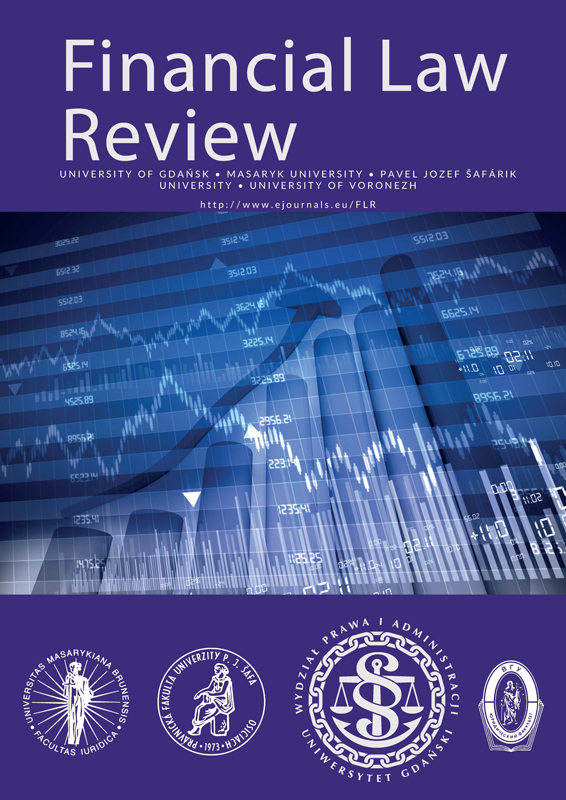The Future of the Digital Permanent Establishment Concept: Challenges and Obstacles
Keywords:
Digital Permanent Establishment, Digital Economy, Taxation, OECD, BEPS, International Tax Policy, Tax RevenueAbstract
Addressing the challenges and implications of taxing the digital economy through the concept of Digital Permanent Establishment [DPE] is the main focus of this article.
Traditional tax systems based on physical presence are inadequate for digital businesses that generate significant revenues without a physical footprint. The research examines whether the introduction of DPE can increase tax revenues in countries where digital services are provided. The hypothesis is that DPE will lead to higher tax revenues by capturing profits that are currently shifted to low-tax jurisdictions.
The objectives of the article are to analyse the potential effectiveness of DPE in increasing tax revenues, the barriers to increasing tax revenues of DPE, and to compare the economic impact between countries that have adopted DPE and those that have not. The research methodology includes legal analysis, historical analysis and comparative analysis of approaches from chosen countries.
Challenges and other factors affecting the enforceability and profitability of the tax reduce the expected finding that countries that have adopted DPE have seen an increase in tax revenues from digital services.
This does not mean that DPE is effective in combating base erosion and profit shifting [BEPS] in the digital economy. However, the study also highlights administrative challenges and the need for international coordination to avoid double taxation.
In conclusion, the article’s findings confirm that DPE can increase tax revenues and contribute to fairer taxation of the digital economy. It provides new insights into the implementation and impact of DPE and highlights its potential to modernise international tax systems. The findings underline the importance of adapting tax policies to the realities of the digital economy.
Downloads
References
Legal Acts
COUNCIL DIRECTIVE [EU] 2016/1164: Laying down rules against tax avoidance practices that directly affect the functioning of the internal market [2016]. https:// eur-lex.europa.eu/legal-content/EN/TXT/?uri=CELEX%3A32016L1164.
COUNCIL DIRECTIVE [EU] 2021/514: Amending Directive 2011/16/EU on administrative cooperation in the field of taxation [2021]. https://eur-lex.europa.eu/ legal-content/EN/TXT/?uri=CELEX%3A32021L0514.
League of Nations. [1933]. Double Taxation and Fiscal Evasion: Report and Resolutions Submitted by the Technical Experts to the Financial Committee of the League of Nations. Geneva: League of Nations.
OECD. [2000]. Model Tax Convention on Income and on Capital: Condensed Version 2000. OECD. https://doi.org/10.1787/mtc_cond-2000-en.
Proposal for a COUNCIL DIRECTIVE: On the common system of a digital services tax on revenues resulting from the provision of certain digital services [2018]. https://eur-lex.europa.eu/legal-content/EN/TXT/?uri=CELEX%3A52018PC0148.
Regulation [EU] 2016/679: General Data Protection Regulation. https://gdpr-info.eu.
UK Government. Income Tax Act 2007 [2007]. https://www.legislation.gov.uk/ ukpga/2007/3/contents.
United Nations. [2017]. UN Model Double Taxation Convention between Developed and Developing Countries. from https://www.un.org/esa/ffd/wp-content/ uploads/2018/05/MDT_2017.pdf.
Internet Resources
Adu, S. Taxation in the digital economy – How much will things change? Retrieved June 10, 2024, from https://www.pwc.com/ng/en/assets/pdf/tax-watch-april2016-tax-in-the-digital-economy.pdf.
Avi-Yonah, R. S. The Structure ofInternational Taxation: AProposal for Simplification. https://repository.law.umich.edu/cgi/viewcontent.cgi?article=3332&context=articles.
Big-Tech Lobbying: How tech giants lobby and why it is concerning. Retrieved June 10, 2024, from https://www.thegoodlobby.eu/hi-tech-lobbying-howtech-giants-lobby-and-why-it-is-concerning/.
Cockfield, Arthur. [2001]. Transforming the Internet into a Taxable Forum: A Case Study in E-Commerce Taxation. Minnesota Law Review, 29-53.
Department of the Treasury. Publication 901: U.S. Tax Treaties [2016]. https://www. irs.gov/pub/irs-pdf/p901.pdf.
Devereux, M. P., & Vella, J. [2014]. Are We Heading towards a Corporate Tax System Fit for the 21st Century? Fiscal Studies, 35[4], 449–475. http://www.jstor.org/ stable/24440324.
EY. Digital tax. Retrieved June 10, 2024, from https://www.ey.com/en_gl/services/ tax/digital.
Honkavirta, V., Perala, T., Ali-Loytty, S., & Piche, R. [2009]. A comparative survey of WLAN location fingerprinting methods. In 2009 6th Workshop on Positioning, Navigation and Communication [pp. 243-251]. IEEE. https://doi.org/10.1109/ WPNC.2009.4907834.
Horobin, W. France Pledges to Remove Digital Tax When OECD Deal Implemented. https://www.bloomberg.com/news/articles/2021-07-06/france-pledges-to-remove-digital-tax-when-oecd-deal-implemented.
KPMG. [2024]. Taxation of the digitalized economy. Retrieved June 10, 2024, from https://kpmg.com/kpmg-us/content/dam/kpmg/pdf/2023/digitalized-economy-taxation-developments-summary.pdf.
Li, Z., Zhou, F., Wang, Z., Xu, X., Liu, L., & Yin, G. [2024]. Measuring and classifying IP usage scenarios: a continuous neural trees approach. Scientific Reports, 14[1]. https://doi.org/10.1038/s41598-024-55750-x.
OECD. [2020]. Tax Challenges Arising from Digitalisation – Report on Pillar One Blueprint. OECD. https://doi.org/10.1787/beba0634-en OECD: Addressing the Tax Challenges of the Digitalisation of the Economy – Policy Note [2019]. https://www.oecd.org/tax/beps/policy-note-beps-inclusive-framework-addressing-tax-challenges-digitalisation.pdf.
Poese, I., Uhlig, S., Kaafar, M. A., Donnet, B., & Gueye, B. [2011]. IP geolocation databases. ACM SIGCOMM Computer Communication Review, 41[2], 53-56. https:// doi.org/10.1145/1971162.1971171.
Zandbergen, P. A. [2009]. Accuracy of iPhone Locations: A Comparison of Assisted GPS, WiFi and Cellular Positioning. Transactions in GIS, 13[s1], 5-25. https://doi. org/10.1111/j.1467-9671.2009.01152.x.
Downloads
Published
How to Cite
Issue
Section
License
Copyright (c) 2024 Financial Law Review

This work is licensed under a Creative Commons Attribution-NonCommercial-NoDerivatives 3.0 Unported License.
Financial Law Review is an open access journal which means that all the articles published are freely available without charge to the reader or his/her institution.
The articles published in Financial Law Review are available under the CC BY-NC-ND 4.0 licence.
The Author furnishes a non-exclusive and free-of-charge license to use the his Work without territorial limitations and for an unlimited period.
Archiving policy
All texts from the journal Financial Law Review are published in electronic version. We strive to archive texts in various databases. Archival issues are also available on the platform of the Academic Scientific Journals: https://czasopisma.bg.ug.edu.pl/index.php/flr/index
Moreover articles published in the journal are archived at the Repository of the University of Gdansk.

 Academic Scientific Journals
Academic Scientific Journals




